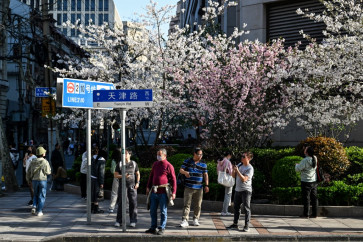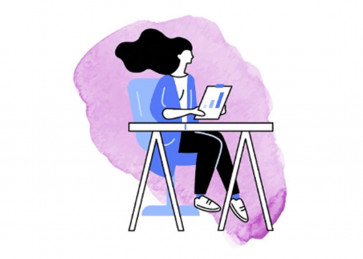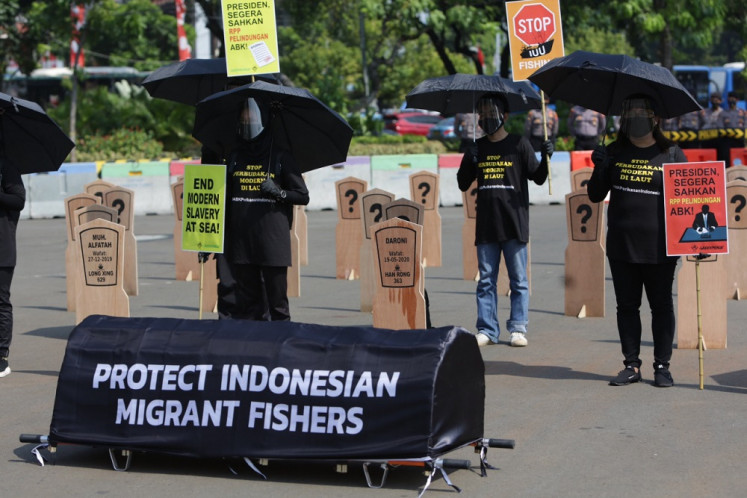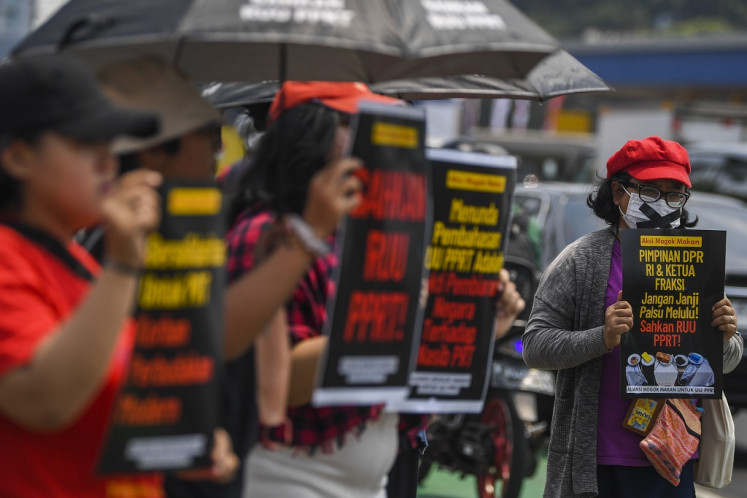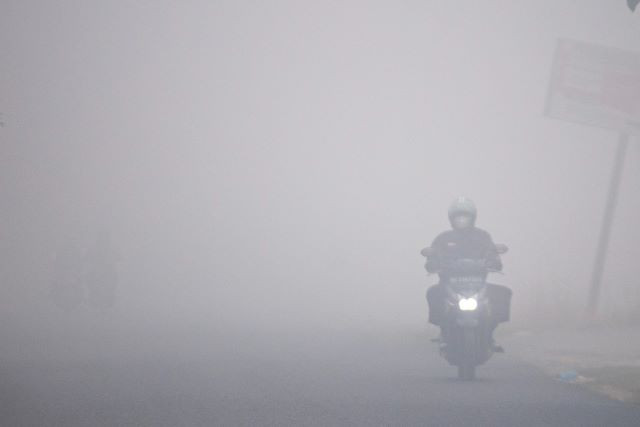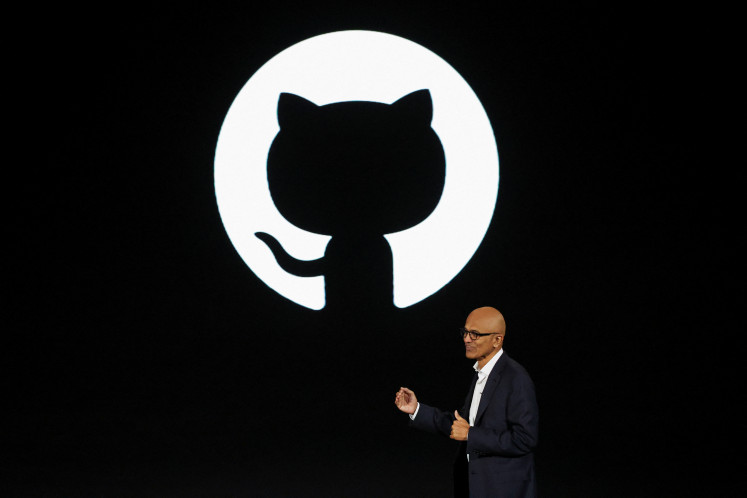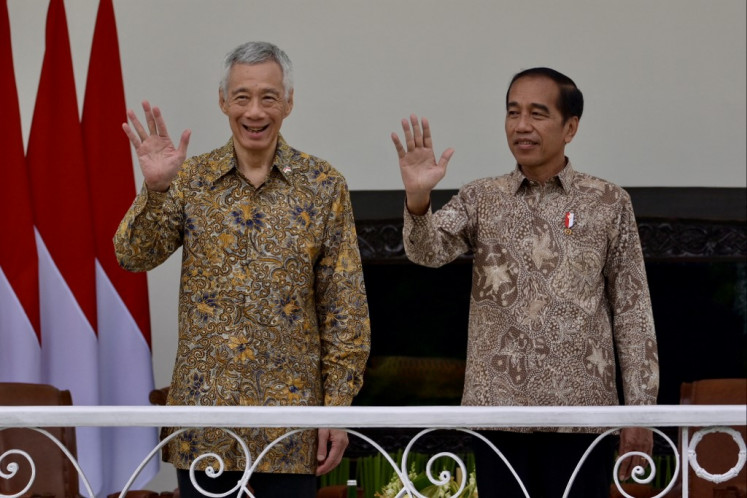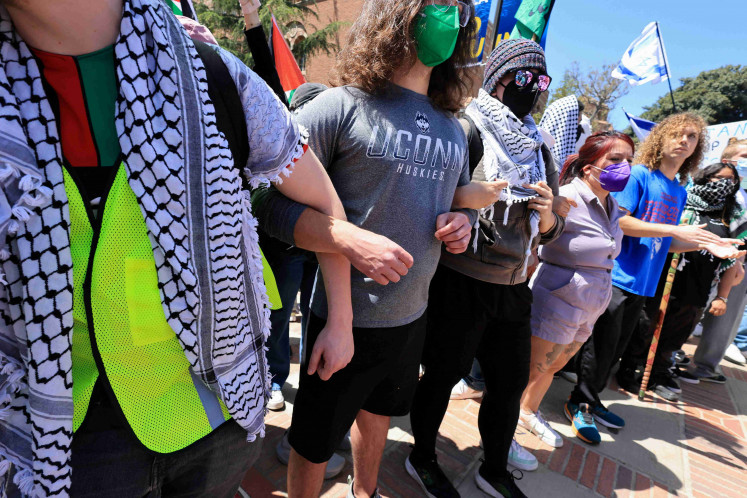Vaccines and climate funds: They are not charity
In the name of public health, pharmaceutical companies must license their patents to poorer countries, not in commercial terms.
Change Size
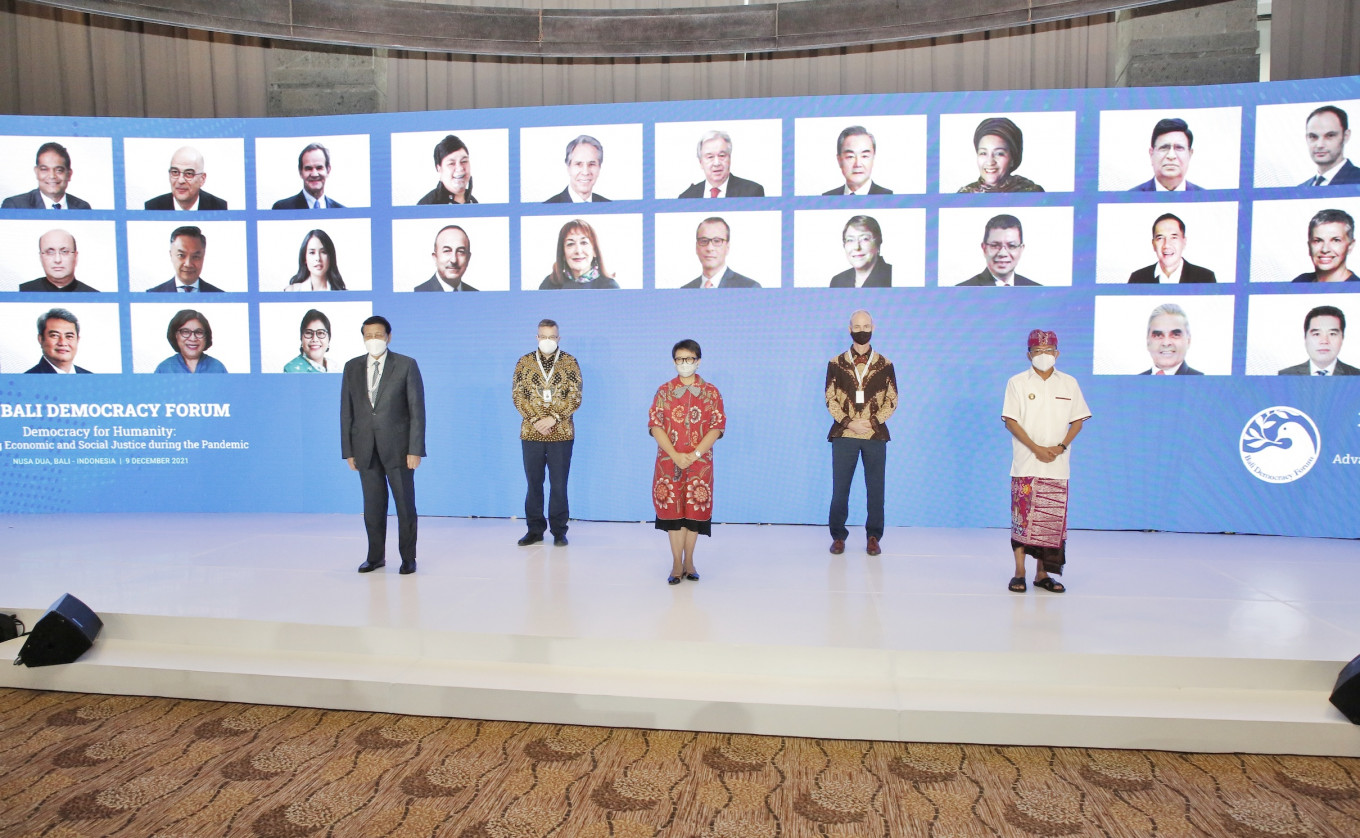 Foreign Minister Retno LP Marsudi (center) is flanked by local and foreign dignitaries as well as by the avatars of global participants of the 14th Bali Democracy Forum held in Nusa Dua, Bali, on Dec. 9. (Courtesy of Foreign Ministry/-)
Foreign Minister Retno LP Marsudi (center) is flanked by local and foreign dignitaries as well as by the avatars of global participants of the 14th Bali Democracy Forum held in Nusa Dua, Bali, on Dec. 9. (Courtesy of Foreign Ministry/-)
T
here are two issues that, in my opinion, are profoundly important if we are to address inequality in the world under the current circumstances. One of them is the inequality or uneven distribution of vaccines.
Rich countries control around 80 percent of vaccines, while the poorer nations receive less than 5 percent. There is a large gap in vaccine coverage. Close to 70 percent of people in high-income countries have been fully vaccinated compared to around 10 percent in low-income countries.
There has been no progressive political decision on the part of rich countries as far as vaccine distribution is concerned. When United States President Joe Biden talked about “patent waiver” a few days after he took office, I was a kind of hoping that we had a light at the end of the tunnel. Sadly, the idea was not pursued and, in addition, other rich countries did not support the idea.
This does not mean that they did not understand the inequality of vaccine distribution. They do. However, they see the idea of “patent waiver” as detrimental to the spirit of capitalism. Innovation and invention are the bedrock of the market economy, and the market economy will not flourish if there is any patent waiver.
So, they instead proposed what they called “vaccine donation” to the poorer countries. In other words, they still see vaccine distribution as charity or corporate social responsibility (CSR).
Equality is not a matter of charity or CSR. It is a matter of rights; it is a human right. Equality requires political determination and acknowledgment that we are all equal regardless of where we come from.
The COVID-19 pandemic has affected every human being regardless of their nationalities, and we keep saying no one will be safe until everyone is safe. We are in the same boat. But the rich countries are just not willing to share the vaccine with poorer countries.
In a different form, we have seen “vaccine nationalism” practiced. This is not equality, this is not democracy.
Legally, there is a way to overcome the inequality of vaccine distribution by enforcing what is called “compulsory license”. In the name of public health, pharmaceutical companies must license their patents to poorer countries, not in commercial terms, so the manufacturing of vaccines can be scaled up massively to meet the demands of the population in an affordable way.
But again, it seems that there is no willingness to license the patents even though millions of people have died and been infected already. Profit is still the name of the game. I don’t think democracy or equality can flourish under these kinds of circumstances.
To do justice, I should mention that there is indeed a mechanism under the COVAX facility, but this is far from sufficient. The COVAX facility does not cover all affected countries. We need an additional mechanism to ensure and expedite the whole process of vaccine distribution between and within countries.
Vaccines should be transported to conflict areas, remote places and social enclaves. We do not want to regret our failure when we see people dying simply because they have no access to vaccines.
Issue number two concerns climate funds. As we know, the Paris Agreement has brought us to a point where carbon emissions reduction, deforestation and upgrading degraded land are the only way forward. Every country should do their part in order to avoid a climate calamity, and for that reason, rich countries promised to assist poor countries to achieve their targets in emissions reduction and deforestation.
The rich countries have already pledged to provide US$100 billion annually to assist poor countries to meet their target in emissions reduction and deforestation. Ironically, the money has never come.
Then came the 26th United Nations Climate Conference (COP26) in Glasgow, Scotland, last month. Again, the same promise was made. It remains to be seen whether the pledges will ever materialize.
If one way or another, the pledges do not materialize, you may have a climate calamity in the end, and we will suffer a great deal. Rich countries may be able to mitigate the extreme heat with their money and technology, they can make their houses relatively comfortable to live in. But the poor countries will be sweating inside and outside of their houses. Many coastal cities will fall, unable to survive. The question is: Where is equality here?
Despite the weakening of the state vis-a-vis super-big business enterprises, the state does have an important role to play. Internally, the state can enforce the law, impose new regulations and require corporations to assist marginalized people, not merely by giving them vouchers, but more than that, creating an ecosystem that brings the people as part of a business enterprise.
In my observations, people, especially the poor, have been excluded from the development process. It is safe to say that in many countries, the political elite are married to business enterprises. I have been a social activist for most of my life, and I have come across marriages of convenience between state and businesses in almost every country. This does not give you a good feeling.
The notion of equality will become a hollow notion, an empty word. The fact of the matter is, the gap between the rich and the poor has become wider and wider, and social security or social safety nets have become inadequate to deal with this prolonged injustice.
Inequality is a contagious thing. But the idea of equality is more contagious. I do find a sense of optimism here.
***
The writer is the Indonesian ambassador to Norway and Iceland. The article was based on his presentation at the Bali Democracy Forum on Dec. 9.


